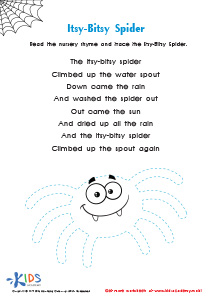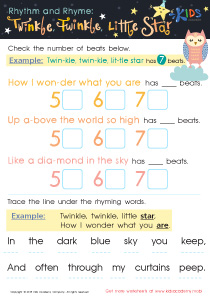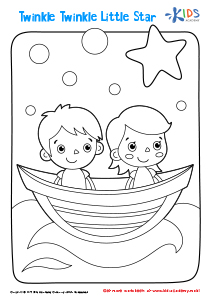Nursery Rhymes Worksheets for Ages 4-8
5 filtered results
-
From - To
Discover the perfect way to introduce young learners to the wonders of language with our Nursery Rhymes Worksheets for ages 4-8. Tailored to blend fun and education, these engaging activities promote literacy, phonemic awareness, and fine motor skills. Each worksheet is thoughtfully designed with vibrant illustrations and beloved nursery rhymes to capture the imagination. Ideal for preschool through early elementary students, these printable resources make learning enjoyable and effective. Nurture a love for reading and rhythm with our delightful worksheets, providing a strong foundation for future academic success. Perfect for classrooms, homeschool, or additional practice at home!
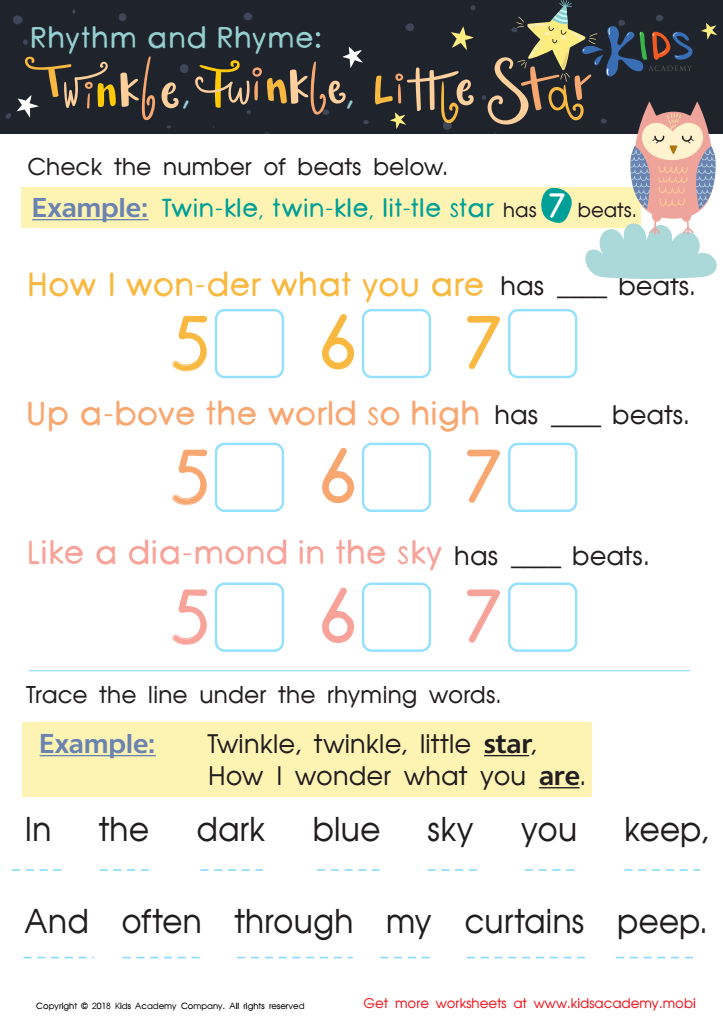

Rhythm and Rhyme: Twinkle, Twinkle, Little Star Worksheet
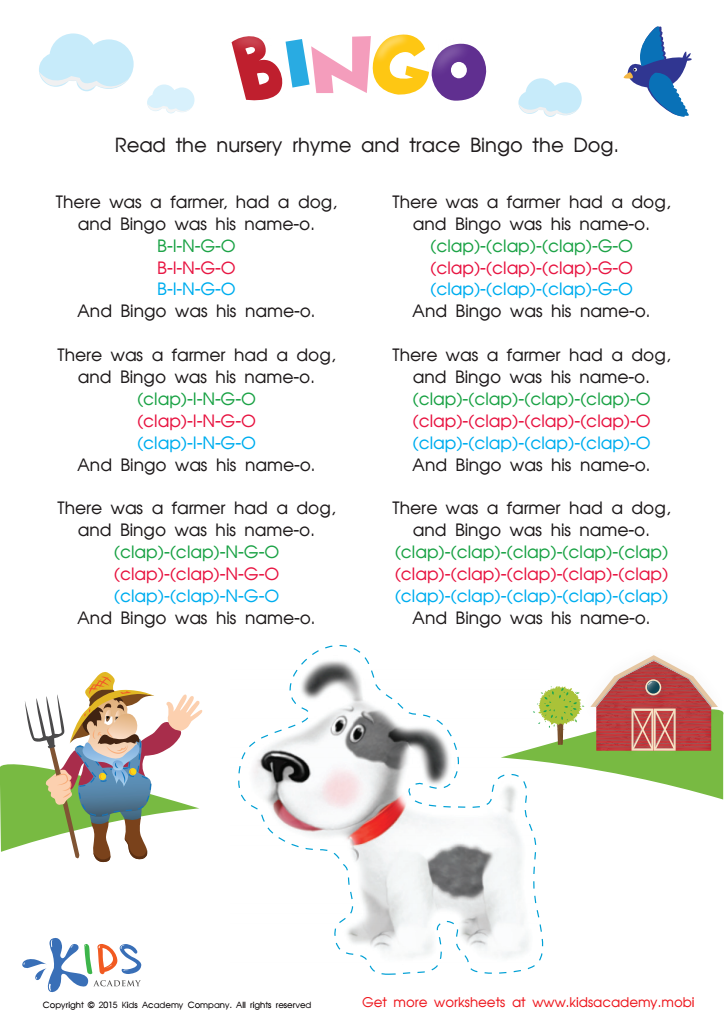

Nursery Rhymes: The Bingo Song Worksheet


The Five Little Monkeys Nursery Rhyme Worksheet
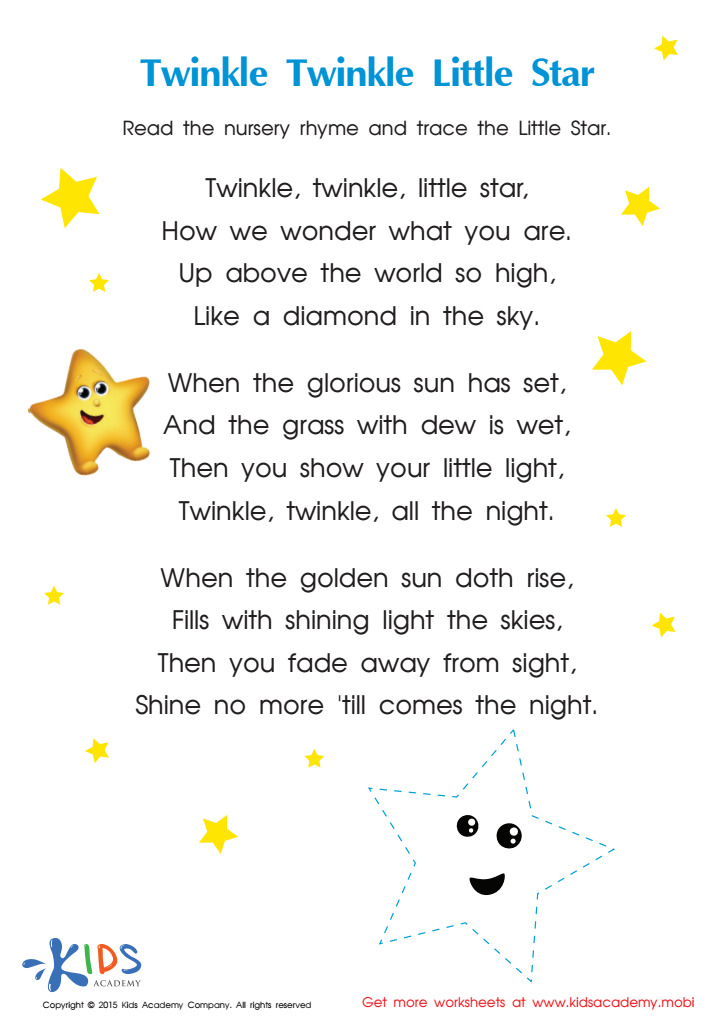

Nursery Rhymes: Twinkle Little Star Worksheet
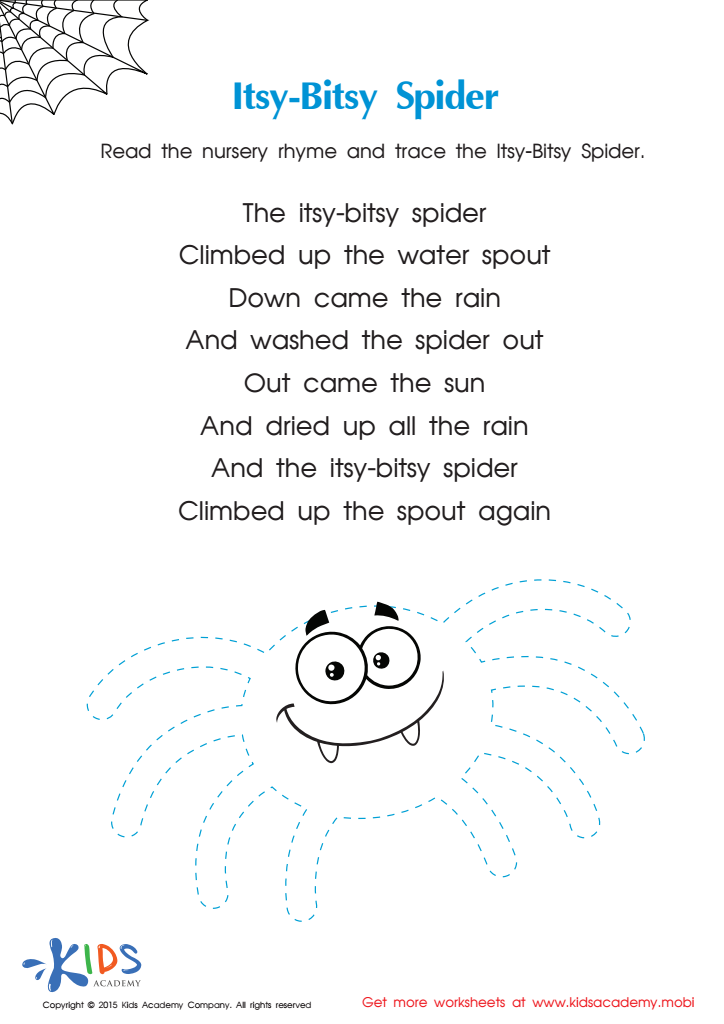

Itsy Bitsy Spider Nursery Rhyme PDF Worksheet
Nursery rhymes play a crucial role in the early development of children aged 4-8, and it's important for parents and teachers to recognize their value. These simple, rhythmic verses are far more than just fun and entertaining; they lay the groundwork for essential learning and developmental skills.
Firstly, nursery rhymes enhance phonemic awareness. The repetitive and rhythmic patterns familiarize children with the sounds and structures of language, an essential step toward literacy. This helps them decode and read new words as they progress in their education.
Secondly, these rhymes bolster memory and recall abilities. Memorizing and reciting nursery rhymes can improve cognitive function and concentration. The patterns and repetition help in retaining information, laying a foundation for more complex learning tasks.
Additionally, nursery rhymes provide a boost to language development. They introduce new vocabulary and concepts in an easily digestible form, broadening the child's understanding and ability to articulate ideas.
Furthermore, rhymes often incorporate numerical and logical sequences, subtly teaching counting and basic math skills. Socially, sharing rhymes in a group setting encourages interaction and helps children develop a sense of community and cooperation.
Incorporating nursery rhymes within educational settings or home routines thereby fosters a multidimensional learning experience, priming young minds for future academic success.

 Assign to the classroom
Assign to the classroom






